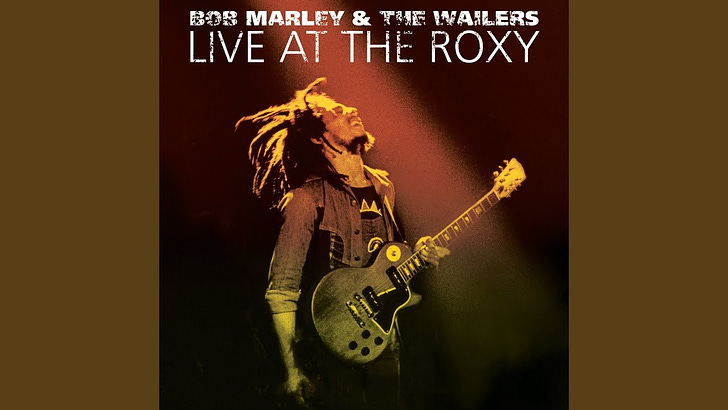

Discover more from Life in the 21st Century
Dem Belly Full
Dem belly full but we hungry
A hungry mob is a angry mob
The rain a-fall but the dirt a-tough
A pot a-cook but the food no-nough
Cost of living get so high
Rich and poor start to cry
Now the weak must get strong
They singing, Oh, what a tribulation!
The global economy promoted over the last four decades is running into ditches across the planet. The latest ditch hit, Nigeria, which not a decade ago was held in esteem as the biggest economy on the African continent. In the last four days protests about the economy have erupted in the streets across the nation. Nigeria got a kick start from Kenyans who have been in the streets for a month. Add what happened in South Africa’s elections, it seems across Africa, development has swerved off the established road. You might ask, “Joe, but what about the Congo?” Yeah, exactly.
I've written a number pieces on Nigeria, such as Nigeria and Shell and an extensive account of my experience in two Nigerian presidential elections and a view on last year's election, Oynibo Analysis of the Nigerian Election, which brought Tinubu into the presidency. Mr. Tinubu is more responsible than any other in the Nigerian political class for the current unrest, most especially as the single most influential figure bringing about the eight years of misrule by his predecessor, the former failed military dictator Muhammadu Buhari.
While Buhari was a figure of the past, who in many ways missed the last half-century, maybe the last century, Mr. Tinubu, from his time in Chicago, was attuned to corporate globalization and the financial politics of the International Monetary Fund (IMF), a foundational financial institution of the post-WWII Pax Americana. Most especially, the IMF espoused strangling the development of much of the world for the direct benefit of the already developed. Out of the tattered IMF playbook, the first actions Tinubu took upon entering office is cut the oil rich state’s domestic energy subsidies and let the naira, Nigeria’s currency, collapse.
Last winter, I had dinner with a Nigerian visiting Chicago. One of the first things she said, “You know the naira's at a thousand to the dollar?” No, I didn't. When I first went to Nigeria in 2014, it was 160. When I returned in 2019, it was 370. When Tinubu entered office in mid-2023 it was 420. Today, a year later, it's floating around 1500! Phew, it's almost bitcoin, except with the naira, there's actual real value there.
What's most ridiculous about Tinubu's punches to the collective gut of the people of Nigeria is the industrial development of China over the last several decades showed the complete farce of IMF thinking and practices. Which should provide one of any number of innumerable reasons for anyone to ask just what is this global financial system and how does it work? A person can start with understanding the great financial charade conducted over the last decades by our global financial oligarchs are influential, though certainly not the only causes of Nigeria’s, Kenya’s, South Africa’s, and all Africa’s economic challenges.
Oil exporting has been a curse for Nigeria. It has funded six decades of misrule, much of that time funding various military juntas, completely debilitating Nigeria’s ability to establish effective governance or an economy beneficial to the majority of Nigerians. Like the rest of the world, Nigeria needs to reconfigure their economy, government, and politics from the ground up. They need to use, not export their oil, traveling a different development path taken by the US and most recently China. Both the US and China also need to fundamentally reform their economies. The Chinese made a big mistake listening to the American bankers and with only 4% of the global population, America cannot continue using 21% of global resources, unless we want to continue fanning the flames of war across the planet till the conflagration engulfs us.
Nigeria reveals what a bust the great compute and information technology revolution has been to date. One of the great changes over the last two decades in Nigeria, indeed much of Africa, has been the almost universal rapid adoption of a compute information/communications network. Yet, just as in the US, unlike with the Industrial Revolution which immediately began uprooting and transforming ten millennia of agrarian society, the information revolution has been nothing more than a particularly robust parasite on industrialism. It has further concentrated wealth and power into a handful of corporations — the great social innovation of industrialism, — with much of the value, such as with Amazon, Facebook, Twitter, and Google, derived solely from the industrial values of selling ever more stuff reliant on ceaseless streams of information retarded advertising. Neither on the African continent or the rest of the world has compute and information technologies led to the creation of new social, political, economic, or government structures, associations, and processes. There has been a complete and rather astounding inability to value information in any other way than by established industrial values.
I started Life in the 20th Century with a look at Nigerian Wole Soyinka's recent novel, Chronicles from the Land of the Happiest People on Earth. It’s well worth a read. A much more valuable, humorous, and brutal look at Nigeria than I could ever provide and which I noted nakedly shares many conditions with these United States.
Subscribe to Life in the 21st Century
History, Science, Energy, Technology, Environment, and Civilization







